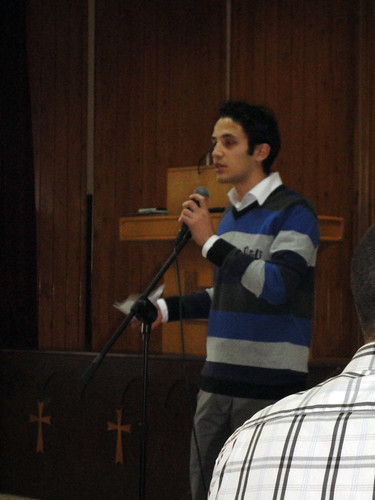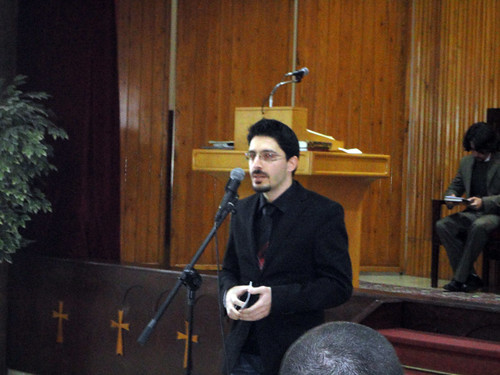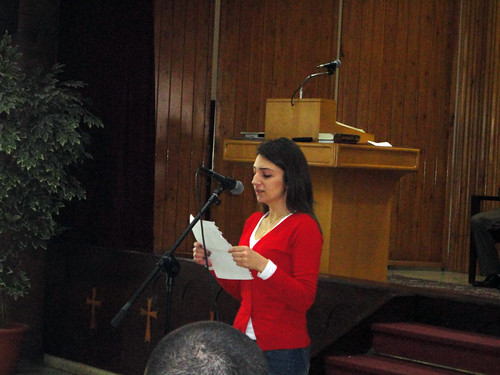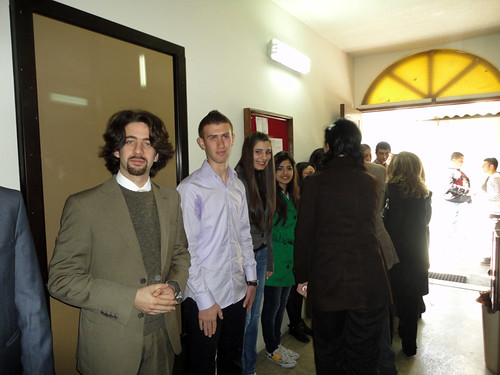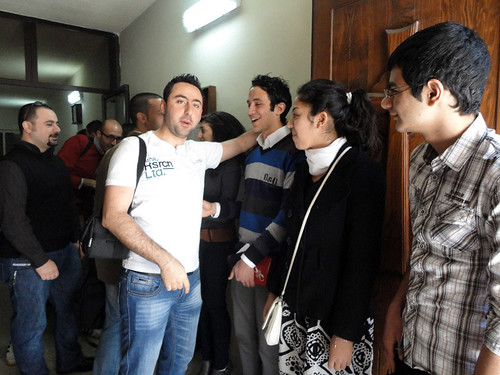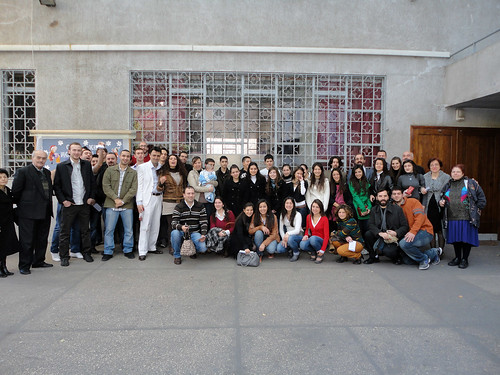On Thursday, March 22, 2012,Haigazian University hosted a lecture entitled “Rethinking the Armenian Experience in the Near East” at 7pm in the auditorium for this month’s Cultural Hour.
The guests were welcomed by Dr. Arda Ekmekji, Dean of the Faculty of Arts and Science, who observed that the roots of the relationship between the Armenians and the Islamic world go back much further than the last century.

Being one of the most prominent scholars studying this relationship, Professor Seta B. Dadoyan was invited to speak in depth about her research, in particular in relation to her new book, “The Armenians in the Medieval Islamic World,” the first of a three-volume work and the culmination of twenty years of effort.
Dadoyan shared her appreciation for Haigazian University as an alumnus, saying it was a “big part of her research and her life.” With her background in philosophy, Dadoyan approached her research with the idea that the methodology and perspective were of primary importance. Thus her book is based on paradigms of interaction, taking specific and well-documented cases that contradict current ideas about Armenians and the Islamic world.
Dadoyan intends her research to be a launching point for further development in this “novel area” which has “a lot of room to build and reevaluate.” The vast majority of material on Armenian history has largely remained unstudied until now, she claimed. Dadoyan then moved into a discussion on her book, giving examples of paradigm cases that address such ideas as Armenian Christianity and dissenters. Adopting a holistic approach, Dadoyan determined to look at things from every angle, taking the good with the bad. She also emphasized the importance of using Arab sources, which are much more extensive than the Armenian ones.
Dadoyan concluded by giving several examples of historic Armenian-Islamic interactions, stressing that “there are so many connections to be made.”
The lecture was followed by a QA session and ended with some refreshments served outside.
The guests were welcomed by Dr. Arda Ekmekji, Dean of the Faculty of Arts and Science, who observed that the roots of the relationship between the Armenians and the Islamic world go back much further than the last century.

Being one of the most prominent scholars studying this relationship, Professor Seta B. Dadoyan was invited to speak in depth about her research, in particular in relation to her new book, “The Armenians in the Medieval Islamic World,” the first of a three-volume work and the culmination of twenty years of effort.
Dadoyan shared her appreciation for Haigazian University as an alumnus, saying it was a “big part of her research and her life.” With her background in philosophy, Dadoyan approached her research with the idea that the methodology and perspective were of primary importance. Thus her book is based on paradigms of interaction, taking specific and well-documented cases that contradict current ideas about Armenians and the Islamic world.
Dadoyan intends her research to be a launching point for further development in this “novel area” which has “a lot of room to build and reevaluate.” The vast majority of material on Armenian history has largely remained unstudied until now, she claimed. Dadoyan then moved into a discussion on her book, giving examples of paradigm cases that address such ideas as Armenian Christianity and dissenters. Adopting a holistic approach, Dadoyan determined to look at things from every angle, taking the good with the bad. She also emphasized the importance of using Arab sources, which are much more extensive than the Armenian ones.
Dadoyan concluded by giving several examples of historic Armenian-Islamic interactions, stressing that “there are so many connections to be made.”
The lecture was followed by a QA session and ended with some refreshments served outside.


































